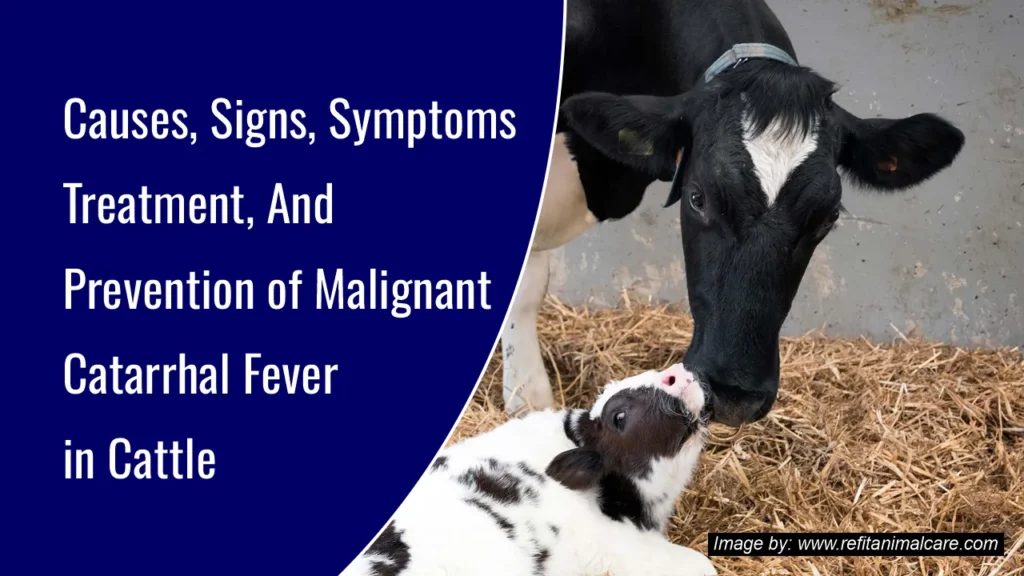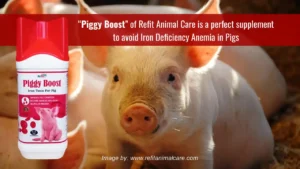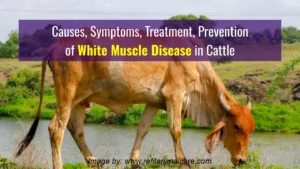
Malignant catarrhal fever (MCF) is a highly contagious or infectious disease and may result in the death of cattle and other ruminant animals like wild oxen, deer, pigs, and water buffalo. A group of herpes viruses caused this fatal bovine malignant catarrhal fever. Once infected, MCF spreads very fast and can affect a large number of animals.
Malignant Catarrhal Fever Causes
MCF is caused due to the infection by herpesviruses belonging to Macavirus. The infection caused by the type of virus involved determines the severity of the disease. Malignant catarrhal fever caused by two most commonly known viruses are:
- Alcelaphine herpesvirus 1 (AlHV-1) is carried by wildebeest. This virus is mostly found in the regions of South Africa.
- Ovine herpesvirus 2 (OvHV-2) has been placed in the gamma-herpesvirus subfamily which can cause MCF in goats in India.
Bovine Malignant Catarrhal Fever Symptoms
Studies have shown that Malignant Catarrhal Fever transmission occurs when the cattle come in contact with the nasal secretions of infected cattle. OvHV-2 is transmitted when the cattle come in contact with aerosols from carrier lambs under 1-year-old age. The respiratory tract is a common route for both entry as well as it is the common route through which the virus enters the atmosphere and affects cattle surrounding the infected cattle. MCF is also fatal in water buffaloes as when infected, malignant catarrhal fever in buffalo also displays the same symptoms in them.
The most common bovine malignant catarrhal fever symptoms in cattle include:
- A persistent high fever (40.5-42°C).
- The cattle undergo severe depression and lethargy due to lack of energy.
- Diarrhea with occasional blood traces.
- Rapid pulse rate.
- Dyspnea due to nasal cavity obstruction
- Urine with occasional blood traces.
- Blindness or high sensitivity to light due to corneal opacity.
- One of the specific symptoms is thick mucus discharge from the nose and mouth.
- Visible swollen lymph nodes especially around the head and neck.
- Tremors, incoordination, or seizures in cattle.
Note: The symptoms can worsen very fast as the cattle’s health can deteriorate at alarming speed resulting in the death within 7-10 days after the onset of the symptoms.
Malignant Catarrhal Fever Treatment
Malignant catarrhal fever does not have any treatment available currently. Supportive care can be provided, but it is to be noted that it only helps to improve the comfort of the infected animal.
Malignant Catarrhal Fever Vaccine
Currently, there is no vaccine available as a cure for malignant catarrhal fever.
Malignant Catarrhal Fever Prevention
Undoubtedly, prevention is better than cure! And this fits here perfectly as there is no cure or treatment available for MCF. Following some of the steps may help minimize the risk of MCF in your cattle:
- Do not include new cattle directly with your existing herd.
- Quarantine new cattle for the proper time and conduct all required health checks before mixing it with your existing health herd.
- Limit contact between cattle and potential carriers, such as sheep, goats, and wild ruminants.
- Cleanliness and hygiene are to be maintained thoroughly.
- Minimize the presence of insects like flies and ticks which may transmit the virus.
- Provide health feed and appropriate feed supplements to boost the immune system of cattle.
- Remember, a strong immune system is a boon to avoid many infections.
Malignant catarrhal fever is a fatal viral infection that can lead to the death of your cattle, as there is no cure or remedy available for this disease. Being observant of the symptoms listed above can help diagnose the disease well in advance. However, the separation of the carrier or infected animals from the healthy animals is the only prevention.











